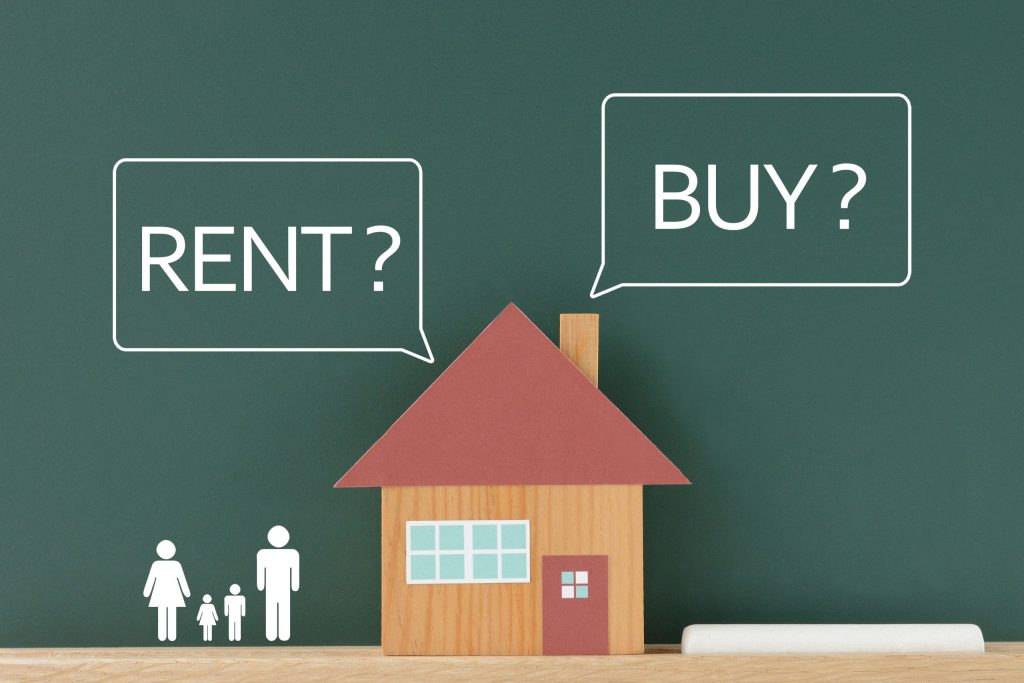Reflecting many points of view and specific circumstances, the main argument has always been whether to buy or rent real estate. Three basic elements define personal preferences, way of life, and specific financial goals needed for this ongoing communication. While some would want flexibility and less initial costs along with renting, others find stability and investment in ownership. Making this decision calls for a grasp of several aspects.
The purpose of this paper is to closely investigate the benefits and drawbacks of buying instead of leasing a real estate. Analyzing key elements like financial consequences, maintenance responsibilities, and lifestyle adaptability will enable readers to choose the one best suited for their objectives and situation. Our major goal is to help the reader, you, make a reasonable decision fit for your current requirements and goals.
The Benefits of Buying Property
Often paying off in the future, buying a house may be a great long-term investment. One of the main advantages is the chance to gradually create equity. Every mortgage payment you make not only covers interest but also reduces the principle, therefore progressively increasing your ownership share in the house. The equity you create might become a great advantage since property prices usually increase. This suggests that, should sales call for a significant profit, you may pocket it and greatly help your financial future.
Apart from the financial benefits, owning a property helps one to feel secure and like they belong. You are establishing roots in your community, not just leasing a location. This stability lets you really make a location your own and create enduring ties with neighbors. You may personalize your house to suit your taste and requirement whether it comes to painting the walls or designing that ideal lawn. Investing in a property gives you the possibility to construct a real home where you may flourish over the years in addition to providing possible financial stability.

Drawbacks of Buying Property
Purchasing a house comes with several difficulties that should be considered clearly. The large upfront expenses are one of the toughest challenges. Along with closing costs for items like house inspections and appraisals, you will have to save for a down payment—a large amount. These initial costs especially if you are not financially equipped might make beginning homeownership seem somewhat taxing.
Another factor is the continuous obligation homeownership entails for maintenance. Unlike renting, in which your landlord handles maintenance and repairs, homeowners answer for everything—from roof replacement to leak fixes. This may sometimes be a lot of effort, particularly if you lead a busy life, and can add unanticipated costs to your budget.
Eventually, purchasing a house might restrict your options. Selling a property is not as easy as merely packing up and leaving a rented flat if life throws you a curveball—such as a job change or a want to relocate to a different place. It calls time, work, and usually extra expenses. Therefore, even if owning a house provides advantages, it is important to consider these difficulties to determine whether they match your present circumstances and future intentions.
Advantages of Renting Property
Particularly for people who value movement in their life, renting provides an amazing degree of freedom that is difficult to match. Whether your situation changes—that is, a new job, a different place, or just a need for a fresh surroundings—you may move simply depending on your rental agreement. For those who are unsure about long-term intentions or want to explore new communities and lifestyles, renters may simply pack up and move when their lease is up, therefore relieving the burden of selling a house.
Renting also usually has less initial expenses than owning a house. Usually, you simply have to pay the first month’s rent and a security deposit instead of a large down payment and closing fees connected with real estate purchase. Renting also has one of the biggest advantages in that one is free from maintenance responsibilities. Usually the landlord takes care of broken or repairable items, saving you both time and money. For many, particularly young professionals or anybody wishing to savor the freedom of a more flexible living arrangement, renting is a wise option because of cheap upfront expenses and little responsibility.
Disadvantages of Renting Property
Renting might be a sensible option, especially for those who would prefer pay less initial outlay and less maintenance responsibility. Lack of equity-building is one major drawback, however. Renting is like paying someone else’s mortgage, so you miss the opportunity to invest in an asset whose value rises with time. Creating money and safeguarding your financial future may be more difficult without equity.
The sensitivity of renters to rent raises yet another issue. Every time your lease expires, your landlord can increase the rent, which would make one worried about future budgeting. This irregular character may cause worry, particularly if you have long-term financial objectives. Renting sometimes also comes with limitations on how you may make your living environment unique. These restrictions on improvements, décor, or even pet ownership might make a rental home seem less like your own, therefore compromising your general comfort and security.
Key Considerations When Choosing
Closely analyzing your financial condition will enable you to decide which of renting and purchasing a property best suits. Review first your income, savings, and credit score. A sound financial foundation is very crucial as homeownership usually calls for a sizable down payment and ongoing costs like property taxes and maintenance. If your money is tight, renting might be the better choice right now as it generally requires less initial outlay and less upkeep responsibility.
Think then on your degree of job stability and way of life. Are you in a job where regular travel is expected? If so, renting provides the freedom you need free from the work involved in selling a house. On the other hand, purchasing can make more sense if you’re comfortable in your line of work and see yourself in one location for a long run. Recall also your long-term goals, which remain same. Are you trying to build equity and plant roots or do you value the freedom to explore numerous living situations? Aligning your personal objectives, job stability, and financial status will enable you to decide what feels best for your life both now and down road.

Conclusion
Making the very personal decision to purchase or rent a house should fit your objectives in life and financial position. While owning a house is a significant commitment that might lead in long-term security and riches as property prices rise, renting offers flexibility and fewer upfront expenditures but loses the possibility for ownership and financial rewards. Examining your financial situation, way of life, and surrounds in the market helps you to evaluate the benefits and drawbacks of every alternative in objectivity. Talking to real estate agents or financial counselors might provide smart analysis fit for your particular situation, therefore guiding your choice to fit your particular situation.

